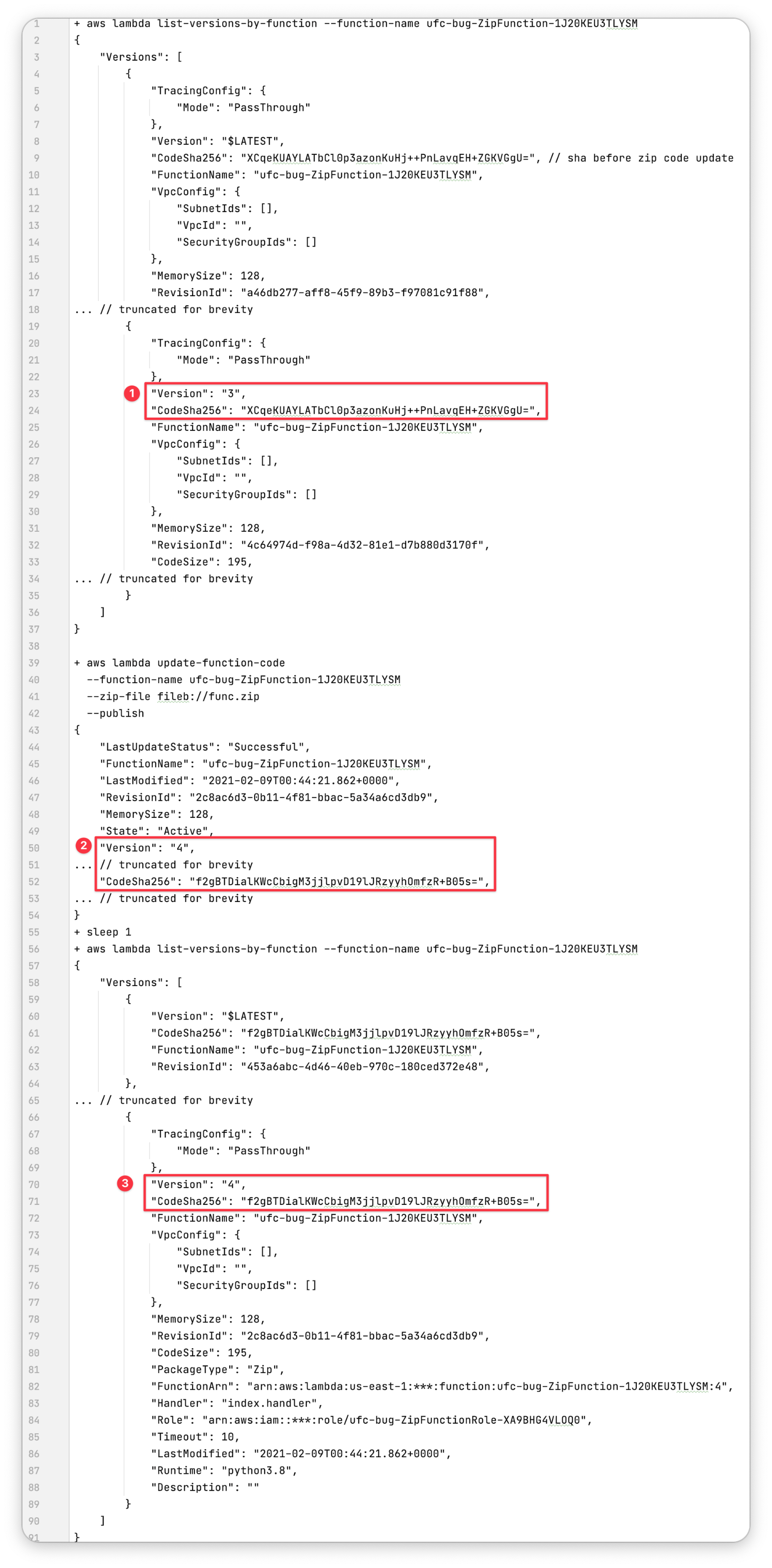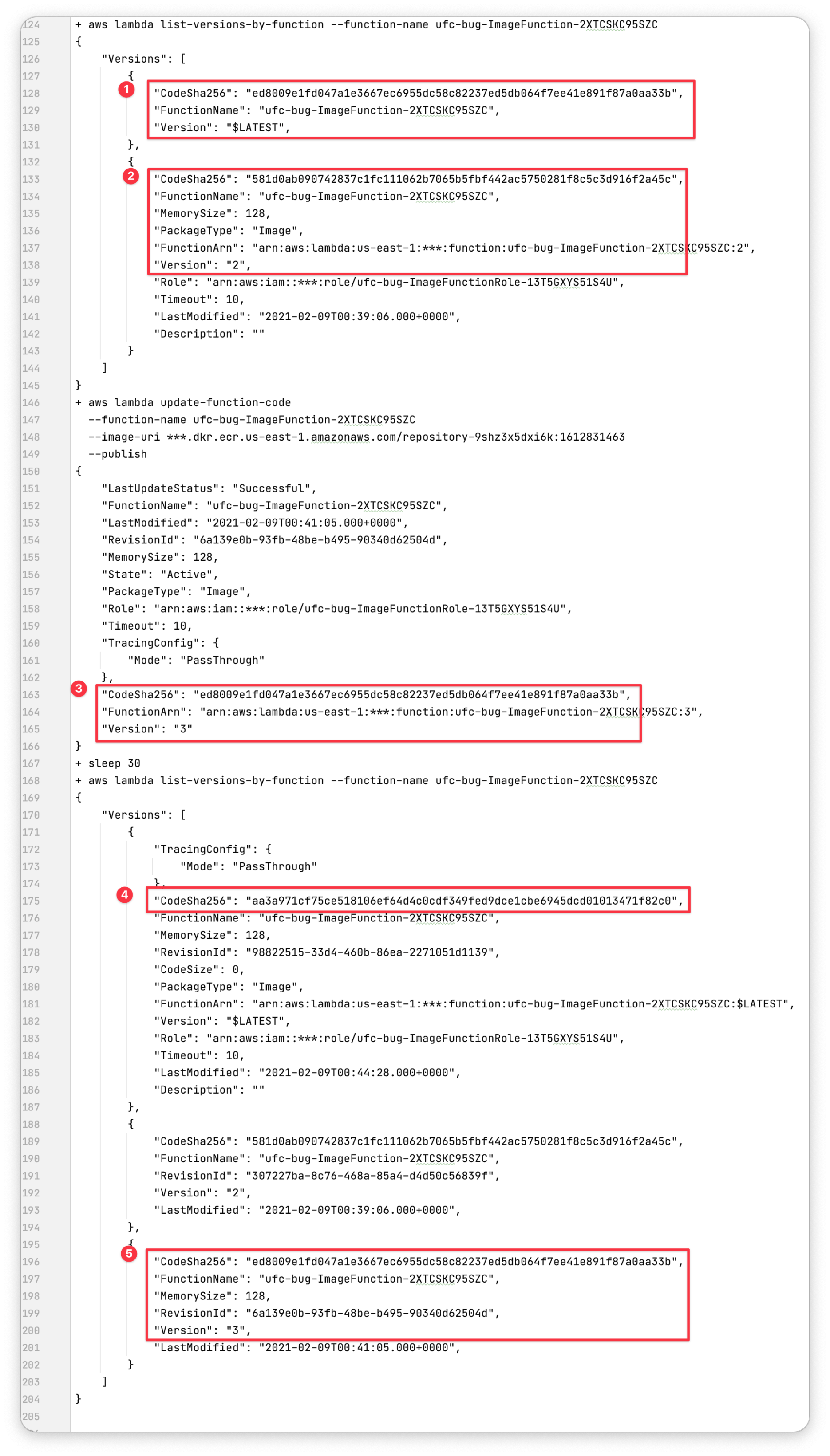There appears to currently be a bug with the AWS Lambda UpdateFunctionCode API.
Specifically, the --publish flag does not work correctly for container image-based
functions. It appears to publish a new version and return the information for the
$LATEST version before the image that is currently being uploaded. This is
different to ZIP file scenario, wherein it creates a version from the ZIP that is
currently being uploaded.
Discussion will follow the reproduction.
This is a screenshot of truncated logs when calling UpdateFunctionCode for a
ZIP-based Lambda function.
The box annotated "1" shows that before updating the function, the newest version
is 3 and has a CodeSha256 beginning with XCq.
The box annotated "2" shows that the response returned by UpdateFunctionCode has
a version of 4 and a CodeSha256 beginning with f2g.
The box annotated "3" shows that a second after updating the function, the latest
function is version 4 and has a CodeSha256 beginning with f2g as expected.
Now compare that to the next screenshot, which is for a container-based Lambda function.
The box annotated "1" shows that before updating the function, the unversioned
$LATEST has a CodeSha256 beginning ed8.
The box annotated "2" shows that before updating the function, latest version is
2 and has a CodeSha256 beginning with 581.
The box annotated "3" shows that the response returned by UpdateFunctionCode has
a version of 3 and a CodeSha256 beginning with ed8 but this is the version
that already existed.
The box annotated "4" shows that 30 seconds after updating the function, the
unversioned $LATEST has a CodeSha256 beginning aa3. This is the code
we just uploaded.
The box annotated "5" shows that the latest version is "3" and has a CodeSha256
beginning with ed8 - this is the already-existing version. No version was ever
by our UpdateFunctionCode call (in annotated box 3).
This feels like a bug, right? It was at least surprising to me: the behaviour
of UpdateFunctionCode with --publish is different for ZIP functions and image
functions. For the former, it creates and publishes a version from the provided
ZIP file. For the latter, it creates a version from whatever was there previously
and doesn't create one for the provided image.
My understanding from working on this is that the $LATEST version of image-based
functions is updated asynchronously. I guess this makes sense, given they can be
up to 10 GB. And that likely has ramifications for versioning, i.e. they can't
return a version number for a function that isn't ready yet. But in that case,
I think passing the --publish flag should return an exception. I can't
see any benefit to the current behaviour.
Please ping me on Twitter (I am @__steele) and let me know if you disagree. I'm very open to being corrected on this.

